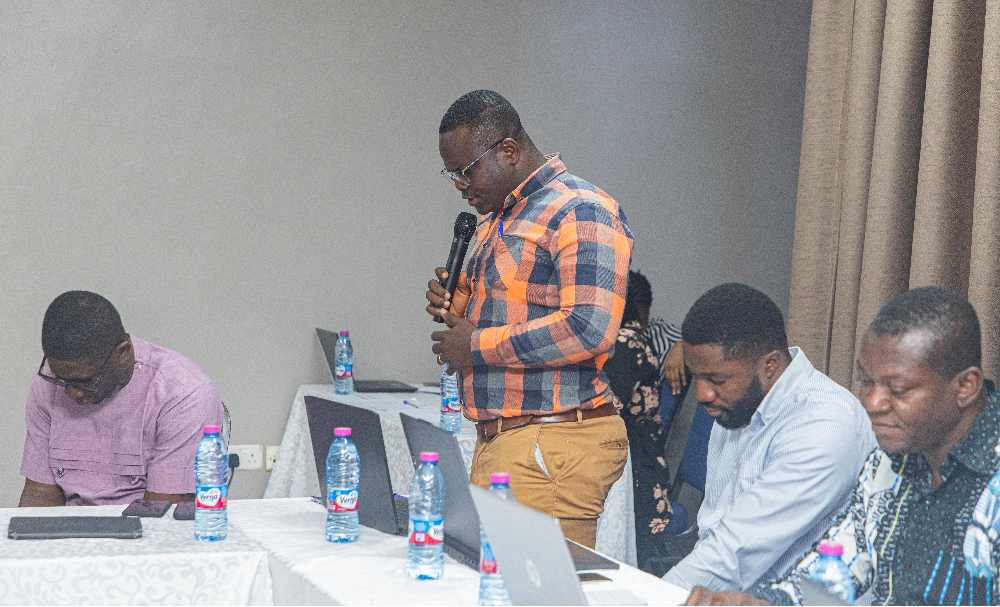Scientists, government agencies and community representatives have met in Kumasi to explore co-created climate services aimed at strengthening urban resilience in Ghana.
The two-day ALBATROSS Climate Services Workshop, held at the Kumasi Hub from July 14 to 15, focused on integrating climate science, local knowledge and policy tools to address risks such as flooding, heatwaves and food insecurity in urban areas.
The event was held under the theme “Co-Creating Actionable Climate Services for Urban Resilience.”
The workshop forms part of the EU-funded ALBATROSS project, which supports the development of next-generation climate services across Africa and Europe. The Kumasi Hub continues to lead on citizen engagement, integrated data systems, and interdisciplinary research to support resilient urban development.
Prof. Michael Poku-Boansi, Principal Investigator of the project stressed the urgency of addressing Kumasi’s growing vulnerability to flooding through early warning systems and nature-based solutions. He urged stakeholders to adopt inclusive, locally informed approaches aligned with the UN Sustainable Development Goals.
Prof. Leonard Amekudzi, coordinator of the Kumasi Hub and leader of Work Package 2 under the ALBATROSS project, highlighted the use of socio-economic and environmental modeling to inform adaptation strategies.

Data inputs from the Ghana Meteorological Agency (GMET), the National Disaster Management Organisation (NADMO), and the Ghana Hydrological Authority underpin ongoing research.
The workshop featured updates on hybrid climate tools being developed by Work Package 5, including high-resolution forecasting models and AI-enhanced planning systems. The tools, designed with end users in mind, incorporate participatory validation and training to ensure long-term adoption.
GMET presented trends in increasing temperatures and erratic rainfall, along with operational services such as daily impact-based forecasts, seasonal updates, and the Climate Atlas. The agency noted efforts to integrate indigenous observations into its forecasts but cited persistent gaps in community engagement and trust.
The Ghana Hydrological Authority outlined its forecasting systems, including FANFAR, FUSE, and Voltalarm, which rely on real-time telemetry and digital elevation data. While functional in Accra and other regions, Kumasi lacks sufficient monitoring infrastructure, limiting early warning capability.
NADMO highlighted its dual strategy for disaster risk reduction, combining flood defenses with public education and community engagement. However, it cited challenges with coordination, land-use enforcement, and political interference in planning decisions.
Participants identified recurring issues such as weak institutional collaboration, limited data-sharing, and low public uptake of forecasts. Discussions called for centralized platforms, stronger legal enforcement, and the engagement of youth and citizen scientists.
Day Two featured a demonstration of the ALBATROSS citizen science toolkit, presented by Saša Vranić. The platform allows users to map hazards, report local data, and feed into broader modeling systems. It is optimized for offline use and designed for adaptation to local needs.
GMET led a session on early warning tools, outlining the use of ensemble models, satellite-based inputs, and platforms like WIS and CAPS. The agency emphasized the role of youth-led climate clubs in building awareness at community level.
Hydro’s session reaffirmed gaps in Kumasi’s hydrological telemetry coverage and proposed replicating Accra’s systems. NADMO presented its Unified Operations Centre, noting that fragmented access to data hinders rapid response and long-term planning.
The final session reflected on pathways for building effective climate service ecosystems in Kumasi. Participants recommended policy continuity, integrated zoning enforcement, and improved institutional incentives to retain local climate expertise.
Prof. Poku-Boansi, in closing, underscored the need for inclusive systems and sustained review of policies beyond political cycles. He thanked all participants and reaffirmed the Kumasi Hub’s commitment to evidence-based, people-centred climate services.

















